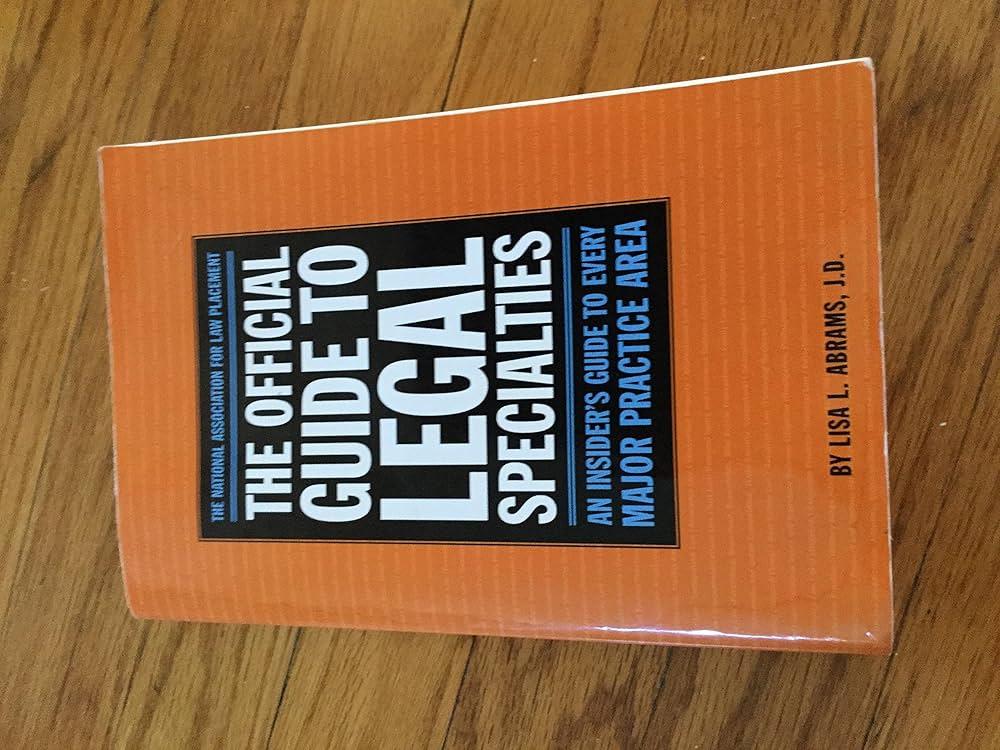Navigating the complexities of the legal system can often feel like sailing through navigating-the-moral-compass-unpacking-ai-ethics-today/” title=”… the Moral Compass: Unpacking AI Ethics Today”>uncharted waters. Whether you’re confronted with a family dispute, a criminal charge, or intricate business negotiations, the right attorney can be your compass, guiding you toward resolution. This article, “Navigating Legal Waters: A Guide to Attorney Services,” aims to illuminate the diverse types of legal services available and equip you with the knowledge to make informed decisions. From understanding the nuances of various practice areas to knowing how to assess the urgency and cost of your legal needs, we will embark on this journey together, ensuring you feel confident and empowered in your quest for justice.
Understanding Legal Specialties for Your Needs
Understanding the nuances of legal specialties is crucial for finding the right attorney to meet your needs. Each area of personal-photography/” title=”How AI is transforming … photography”>law encompasses unique challenges and requires specific expertise. For instance, if you are facing a family matter, a family law attorney can help navigate issues such as divorce or child custody. Conversely, if you have been injured due to someone else’s negligence, a personal injury lawyer will be essential in advocating for your rights and securing compensation.
When selecting legal representation, consider creating a list of your needs and desired outcomes. This can include:
- Type of Legal Issue: Identify whether your matter is personal, criminal, corporate, or involves estate planning.
- Experience Level: Look for attorneys with a proven track record in your specific area of law.
- Fee Structure: Understand whether they charge hourly rates, flat fees, or work on a contingency basis.
By understanding these specialties, you can confidently approach your legal concerns and ensure that your attorney is well-equipped to guide you through the process.

Evaluating Attorney Credentials and Experience
When evaluating the credentials and experience of an attorney, it is essential to consider several key factors that contribute to their qualifications. Start by reviewing their educational background and specializations, as these can indicate whether they possess the necessary knowledge in the specific area of law relevant to your case. Additionally, assess their professional affiliations and memberships in relevant bar associations, which demonstrate commitment to ethical standards and ongoing legal education. You might also want to look into any published works or speaking engagements, as these reflect a recognized status within the legal community.
Another important aspect is to verify their experience in handling similar cases. Look for attorneys who have a proven track record of success in situations akin to yours. You can ask for client testimonials or references to gain insight into their working style and effectiveness. An attorney’s approach to communication is also vital; ensure they are accessible and willing to keep you informed throughout the legal process. Consider organizing the information you gather into a table for clarity:
| Criteria | Details |
|---|---|
| Educational Background | Law school, specialties, additional certifications |
| Experience | Years in practice, types of cases handled |
| Client Testimonials | Reviews and references from previous clients |
| Professional Affiliations | Memberships in bar associations or legal societies |
Effective Communication Strategies with Your Lawyer
Maintaining clear and effective communication with your attorney is crucial for a productive legal partnership. Here are some strategies to enhance this communication:
- Be Prepared: Before meetings, gather all relevant documents and notes to discuss key topics efficiently.
- Set Clear Goals: Define what you hope to achieve from your legal representation to keep discussions focused.
- Ask Questions: Don’t hesitate to seek clarification about legal terms or processes that you find confusing.
- Provide Feedback: Share your thoughts on the strategies suggested by your lawyer to ensure they align with your expectations.
Utilizing technology can also streamline communication. Consider the following tools:
| Tool | Purpose |
|---|---|
| For quick updates and document sharing. | |
| Video Conferencing | To discuss complex issues face-to-face without the need to meet in person. |
| Legal Management Software | To track case progress and deadlines efficiently. |
Budgeting for Legal Services: Costs and Considerations
When planning for legal services, it’s crucial to account for various costs associated with hiring an attorney. Understanding these expenses can help prevent unexpected financial strain. Here are key factors to consider:
- Hourly Rates: Most attorneys charge by the hour, with rates varying by experience and specialization.
- Retainer Fees: A retainer may be required upfront to secure services, often serving as a prepayment for future hours.
- Flat Fees: For specific services such as drafting contracts or handling divorces, attorneys might offer flat-rate pricing.
- Additional Expenses: Be aware of extra costs, including court fees, expert witness fees, and costs for legal research.
To effectively budget for these legal expenses, create a detailed cost estimate considering both direct and indirect costs. A simple table can help outline your anticipated spending:
| Service | Estimated Cost |
|---|---|
| Initial Consultation | $100 – $300 |
| Hourly Rate | $150 – $500 |
| Retainer Fee | $1,000 – $5,000 |
| Flat Fee Service | $500 – $2,000 |
The Way Forward
As you embark on your journey through the often turbulent waters of legal services, it’s essential to remember that the right attorney can be your compass, guiding you toward favorable outcomes. Whether you find yourself in need of affordable legal aid or navigating complex legal landscapes, understanding your options is crucial. From exploring community resources and understanding eligibility for assistance to recognizing the various types of legal services available, this guide aims to empower you with the knowledge you need to make informed decisions. As the tides of legal challenges ebb and flow, being well-prepared will not only ease your navigation but also help you reach the shore of resolution with confidence. Remember, every legal journey begins with a single step-take that step with clarity, and let the law work for you.









